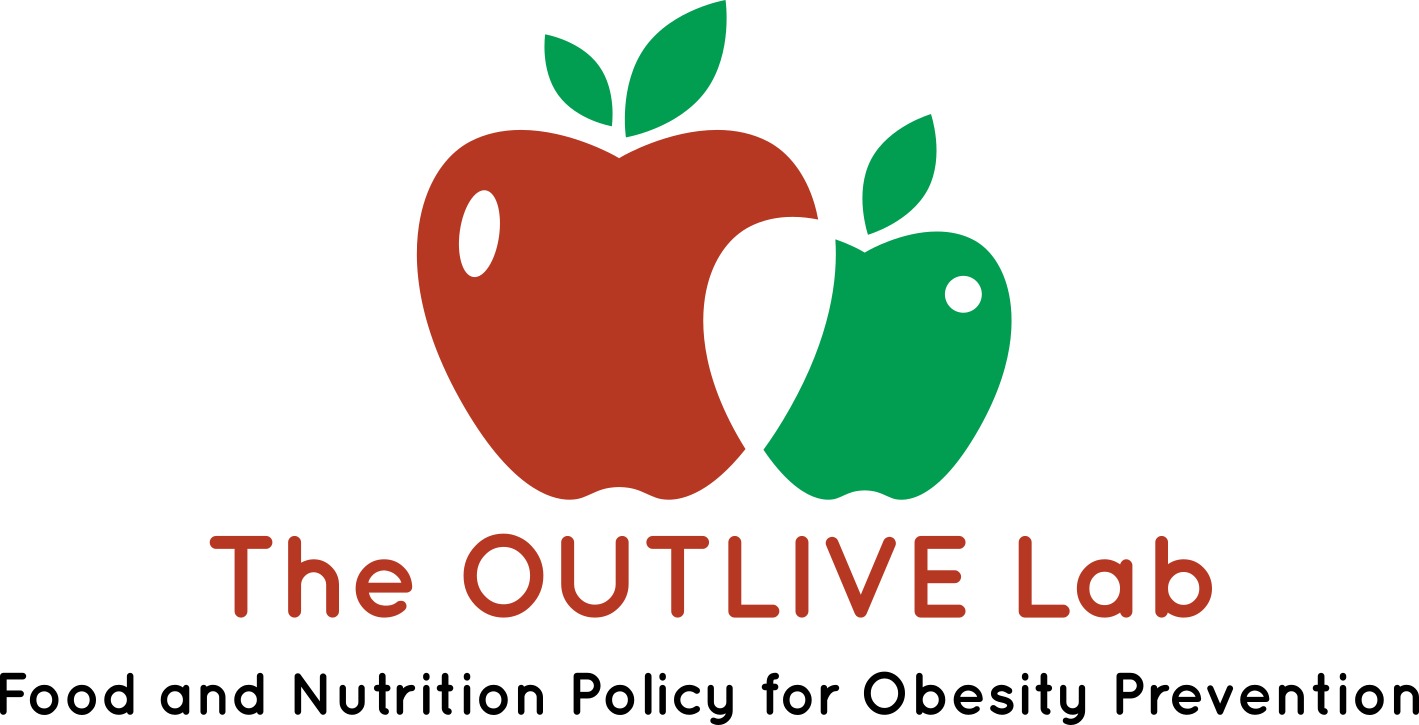Situated within the University of Ottawa’s School of Epidemiology & Public Health and led by Dr. Monique Potvin Kent, the OUTLIVE Lab specializes in conducting research on food and nutrition policies aimed at the prevention of obesity and related chronic diseases. Our team works in partnership with many governmental agencies, non-governmental organizations, and researchers in the field of health and public health policy.
What do we do?
The OUTLIVE Lab examines children and adolescent’s exposure to food, beverage, alcohol and gambling marketing, the healthfulness and power of this marketing, and its health impact. Our research looks at marketing in various media channels, including on television and in digital media (i.e., social media, websites, and applications), and settings, including schools, retail environments, and movie theatres. The OUTLIVE Lab also studies food and beverage sponsorship of sporting events and children’s sports teams.
Additional research conducted by the OUTLIVE Lab examines the practices of industry, including expenditures on food and beverage advertising targeting children, corporate social responsibility, and lobbying activities that impact food and beverage policies. Our research also evaluates current policies and whether they are protecting children and adolescents from marketing.
Why we do what we do?
Multiple systematic reviews and meta-analyses of the literature have shown that food, beverage, alcohol, and gambling companies are marketing in ways that target children with advertising for their harmful and addictive products.
In particular, unhealthy food and beverage advertising is a determinant of childhood obesity and children's food preferences and intake. As a result, the World Health Organization is pushing member states to regulate food and beverage marketing to children. Our research informs food and nutrition policies aimed at the prevention of obesity and related chronic diseases.
“Unless effective population-level interventions to reduce obesity are developed, the steady rise in life expectancy observed in the modern era may soon come to an end and the youth of today may, on average, live less healthy and possibly even shorter lives than their parents.”
—Olshansky et al. (2005). A Potential Decline in Life Expectancy in the United States in the 21st Century. N Engl J Med 352; 11: 1138-1145.
Our team
Meet the OUTLIVE Lab team, past and present
Current projects
Get a glimpse of what we are currently investigating
completed projects
Access a complete list of our lab’s research works







